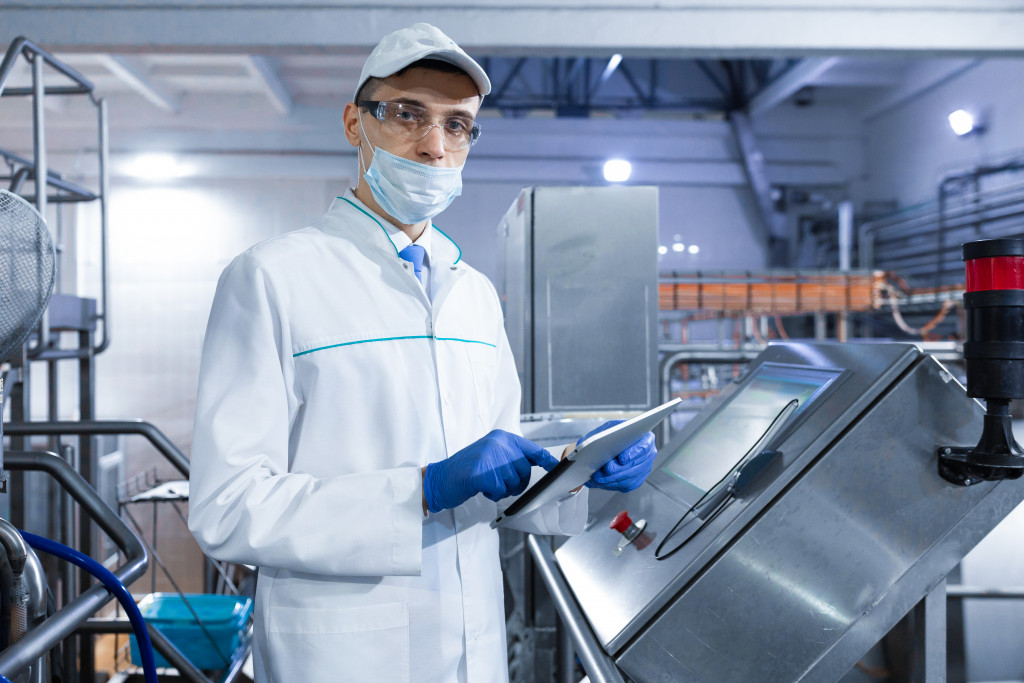The pharmaceutical industry is highly regulated, and for a good reason. Pharmaceutical companies are responsible for developing and manufacturing products that save lives and improve the quality of life for millions of people. Therefore, it is critical that these companies adhere to strict compliance standards to ensure that their products are safe and effective.
Here are some ways to ensure compliance in the pharmaceutical industry.
Establish a Culture of Compliance
The first step to ensuring compliance is to establish a culture of compliance within your organization. No business can be entirely compliant if its employees are not committed to following the rules.
Creating a culture of compliance starts with clear expectations and policies that are communicated to all employees. It also requires regular training on compliance topics and regular monitoring to ensure that employees are following the rules. But it’s not just about following the rules — it’s also about instilling a sense of ethical responsibility in every member of the company.
When everyone is working together to uphold the highest standards, compliance becomes second nature. This way, even if there are occasional lapses, they will be caught and corrected quickly.
Engage an Experienced Compliance Officer
Another critical way to ensure compliance is to engage an experienced compliance officer. This person will be responsible for developing and implementing compliance policies and monitoring the company’s compliance program.
An experienced compliance officer can identify potential compliance risks and put in place procedures to mitigate those risks. They can also develop training programs to ensure that employees are up-to-date on the latest compliance requirements. And, perhaps most importantly, a compliance officer can serve as a sounding board for ethical concerns — ensuring that employees feel comfortable raising issues without fear of retribution.
For instance, suppose you have different types of equipment in your facility. In that case, you must ensure that you meet the standard ASME BPE dimensions necessary for constructing biopharmaceutical equipment. In doing so, you will avoid production delays, rework, and unplanned downtime that can lead to significant financial losses.
Use Technology to Automate Compliance
Technology can also play a role in ensuring compliance. Many software programs can help you automate compliance-related tasks, such as documenting employee training or auditing supplier information.
You can also take it up a notch by using predictive analytics to identify potential compliance risks before they happen. By using technology to automate compliance-related tasks, you can free up time for your employees to focus on more strategic tasks. Additionally, you will have a clear record of compliance-related activities that can be used to demonstrate your commitment to compliance if you are ever audited.
And by making compliance more manageable, you can help ensure that it becomes a priority for your employees.
Focus on Prevention
The best way to ensure compliance is to focus on prevention. That means identifying potential risks before they happen and taking steps to mitigate them.
For instance, you can conduct regular audits of your facilities and processes to identify potential compliance risks. You can also put in place procedures for reporting and investigating compliance concerns. And while technology can help you automate some compliance-related tasks, it’s also important to have human eyes on the process to ensure that nothing falls through the cracks.
A retroactive approach to compliance is often more costly and time-consuming than a proactive one. By addressing potential risks, you can help prevent them from becoming real problems, thus saving your company time and money.

Conduct Regular Audits
Audits of your compliance program are necessary to ensure that it is effective. But audits can also be used to identify areas where improvements are needed.
Your audit program should include regular audits of your compliance policies and procedures and periodic audits of specific areas of your business. For example, you might want to conduct an audit of your procurement process to ensure that you are only doing business with reputable suppliers. Coordinating audits across different departments will help ensure that your compliance program is comprehensive.
Regular audits will help you identify any weak spots in your compliance program so that you can address them quickly. They will also serve as a deterrent to employees who might be tempted to take shortcuts. Simply demonstrating your commitment to compliance can help make it a priority for your employees.
Ensuring compliance in the pharmaceutical industry is a complex and ongoing task. But by taking some simple steps, you can create a culture of compliance within your organization and implement procedures to prevent and address compliance concerns. With a little effort, you can ensure that your company complies with all applicable regulations.



